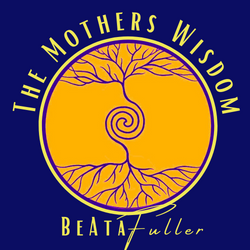Schooling or Education?
There's an interesting trend I notice in conversations about education. It quickly becomes obvious how synonymous "education" and "learning" have become with "schooling". This confusion is causing much of the stress rippling through the world: parents, children, teachers, students, employers, employees - suffering unnecessarily because of a misuse of words.
Someone I once knew said "If only someone had told me it was a game and that I was supposed to play it, I would have done really well at school." Seeing the insanity and incongruence of what was being offered, they rebelled against it, screwing up their life in the process.
I, on the other hand, played the game so well that I had no idea how to do life any other way. I knew what to say and how to say it, how to act to be rewarded and praised at every chance. Class captain, school captain, dux - all of it meant nothing because I knew that none of it was the real me. So good at the good-girl act that I had no idea what I was interested in or wanted out of life.
Both very inefficient uses of the school years. And there are many more iterations of how people cope with spending their "best years" this way.
Now, decades later, there is even more disconnect.
Students have access to information beyond what teachers can deliver. It's more difficult to convince them that school is preparing them for the future and that they'll see the point of school once they "grow up".
Students and teachers know that they're just biding time, that they're subject to a construct designed by people long-gone for a world that no longer exists and is never coming back.
There's an energy of forcing and pushing and trying around schooling. Some do their best to look at the positives or bring in re-form (which, if you look at the word, is no more than a reshuffle of the current form, and so will never create any real change), while others vacate disillusioned.
The problem is, of course, that school is (as a response to obvious shifts in society) trying to be something it was never designed for.
Education reform in schools is the equivalent of planting an apple tree many years ago, and trying to turn it into a potato plant because we now need more potatoes than apples.
True education does not - can not - happen in schools: sitting in a chair (even if it's now a lounge or some other modern flexible seating), confined to four walls and peers born in the same year (even if now some cross-pollination is allowed), while assumed and rendered powerless in relation to even the most personal things like eating, speaking, movement and the ability to go outside and get some fresh air.
Schools were designed for a purpose, and they served that purpose well. The apple tree was planted and it continues to bear apples.
But let's not confuse that with education in the true sense of the word.
So what if we stopped the confusion and accepted the truth?
What if we allowed schools to be schools and do what they are designed to do? To focus on teaching rather than learning, teach students how to sit still for long periods, how to take instruction and resist the urge to speak at will, how to behave around authority to avoid punishment and get the best outcome for yourself.
All useful skills, but certainly not the core of what young people need to learn in today's world.
So what about education? What do we do about that?
Education can only be designed from scratch. We need to go beyond out-of-the-box thinking, otherwise we're still referencing that old box.
How would education look if we accepted the schooling system to be something else, and started with nothing as a reference?
What do young people need to learn?
Not just "these days" (otherwise we'll risk designing another system that will quickly date), but in general?
What are the best ways to learn it?
Does everyone have to learn the same stuff in the same way?
Do we really need to know how they're going every term?
Do the same people need to meet in the same place every day?
How would things look if we started with that? Questioning everything. Assuming nothing.
Blank slate.


